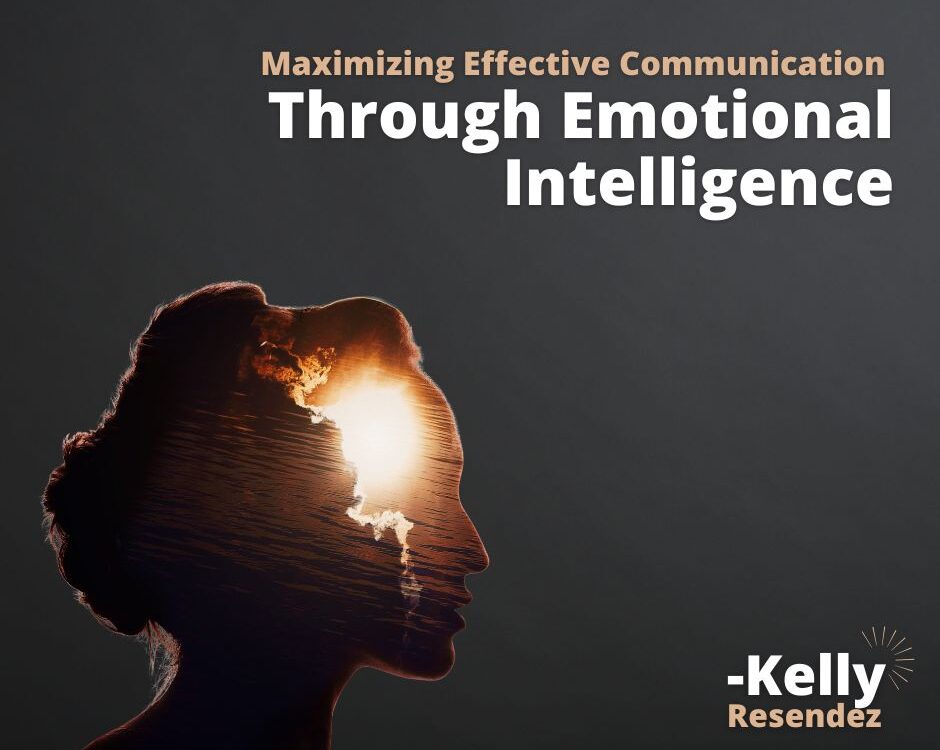
Inside the Great Resignation
February 1, 2022
Kelly Resendez appears as a guest on The Mark Haney Show podcast.
April 16, 2022Why we self-sabotage when happiness, love, and success are finally within reach.

Deep down, there’s a part of us that’s scared senseless by the thought of being truly happy, successful, or fulfilled. For many of us, whenever we get close to achieving something new and great in our lives, our negative belief mechanism kicks in overdrive, often leading to self-sabotage. If the lightbulb just went off, you may be suffering from “Upper Limit Problems” without even realizing it.
One of the best primers we’ll find on the concept of Upper Limit Problems is the book, The Big Leap by author Gay Hendricks. I read it several years ago and had many eureka moments throughout. It was so revealing and powerful that I’ve actually reread it or referred to it several more times over the years.
Hendricks, author, psychologist, and respected teacher in the field of relationships and personal growth, best describes the premise of The Big Leap.
“I’ve worked with hundreds of extremely talented, capable executives and professionals over the past 45 years,” says Hendricks. “Yet even with their awesome skills, there were still areas of their lives in which they kept hitting upper limits and then sabotaging themselves.
In my work, we identify the underlying issues that trigger the Upper Limit Problem, so that people can rise smoothly to higher and higher levels of their potential without bumping their heads against the false ceilings that are held in place by negative belief systems.”
That inner voice that insists only trouble, pain, and disappointment lie ahead if we don’t “play it safe” is like an intrinsic thermostat. Usually programmed since early childhood, it gauges just how much happiness, love, or wealth we’ll allow ourselves.
There are several reasons why we often set upper limits, effectively boxing ourselves into a prison of our own design.
This may hit home – it seems that human beings are hard wired to seek out comfort in life, not happiness. So, happiness – which comes from striving to maximize our potential or chase our dreams, and the risk associated with it, is contrary to the comfort of being stable and safe.
It turns out that we’re programmed to stay in our “safe zone,” however we interpret and perceive that on a primal level.
For that reason, we’re often really uncomfortable with greater happiness, love, success, or wealth because it’s unfamiliar. Achieving those things at previously unfathomable levels and for prolonged states might shatter our self-beliefs that have become deeply ingrained. Our minds, therefore, see these new states as foreign and psychologically threatening, even though they are positive.
A good example of this is why it’s so easy to accept and internalize criticism but way more unnerving for us to deal with praise or compliments.
There’s another good reason why our minds self-sabotage us with upper limits whenever we start achieving good things in life: the more we have, the more we have to lose. In fact, the psychological pain of loss is far greater than that of not gaining that thing in the first place, whether that is money, love, a prize, etc.
So, when we have a new relationship that’s going great, for instance, we may feel more vulnerable and scared of losing it to the point that we don’t even enjoy it, and therefore do something to sabotage it because that feels safer.
This is also a function of human beings as creatures of habit. Once you’ve been fighting and clawing to survive, serially disappointed by relationships, and basically form a vision of life as always a struggle, it doesn’t feel real or sustainable when things start rolling your way.
Think of it as a deep-sea diver who comes up to the surface too quickly and becomes disoriented!
There are many ways that deeply ingrained Upper Limit Problems may manifest in our lives, but they mostly show up in two ways: with irrational fear (in all its forms, such as anxiety) and when we self-sabotage.
Think of those as the one-two punch to make sure we revert back to a more comfortable (but not happier) and baseline state that’s familiar. Since fear is largely ego-driven, it signals a questionable decision-making process that ensures we sabotage the new, scary, and way-too-big change in our life.
According to Hendricks and other psychologists, experiencing these emotions are often signs that you have Upper Limit Problems, especially if you hold several of them or they are exceedingly intense.
You may have Upper Limit Problems if…
- You feel like you’re fundamentally flawed in some way or less than normal.
- You’re overly anxious and worry all the time.
- You tend to project blame and criticism on others.
- You’re overcome with feelings of guilt, even though they aren’t warranted.
- You experience incessant negative self-talk and doubt.
- You literally make yourself sick with negative thoughts and feelings (due to the very powerful mind-body connection).
- You feel like achieving success means you are being disloyal, abandoning others, or will lead you to end up alone.
- You believe that unprecedented wealth or success will “change you” and become a burden or negative drag in your life.
- You’re worried about outshining your friends, coworkers, or those in your life.
If some of these are all-too-familiar, you probably are suffering from Upper Limit Problems. But that’s not reason for dismay, as the first step to reversing that psychological phenomenon is identifying that it actually exists in you.
And with a little consciousness, introspection, and mindful practice, you can actually “solve” these Upper Limit Problems for good, unleashing your potential.
Unimagined new levels of happiness, wealth, and incredibly fulfilling relationships are waiting for you on the other side!



